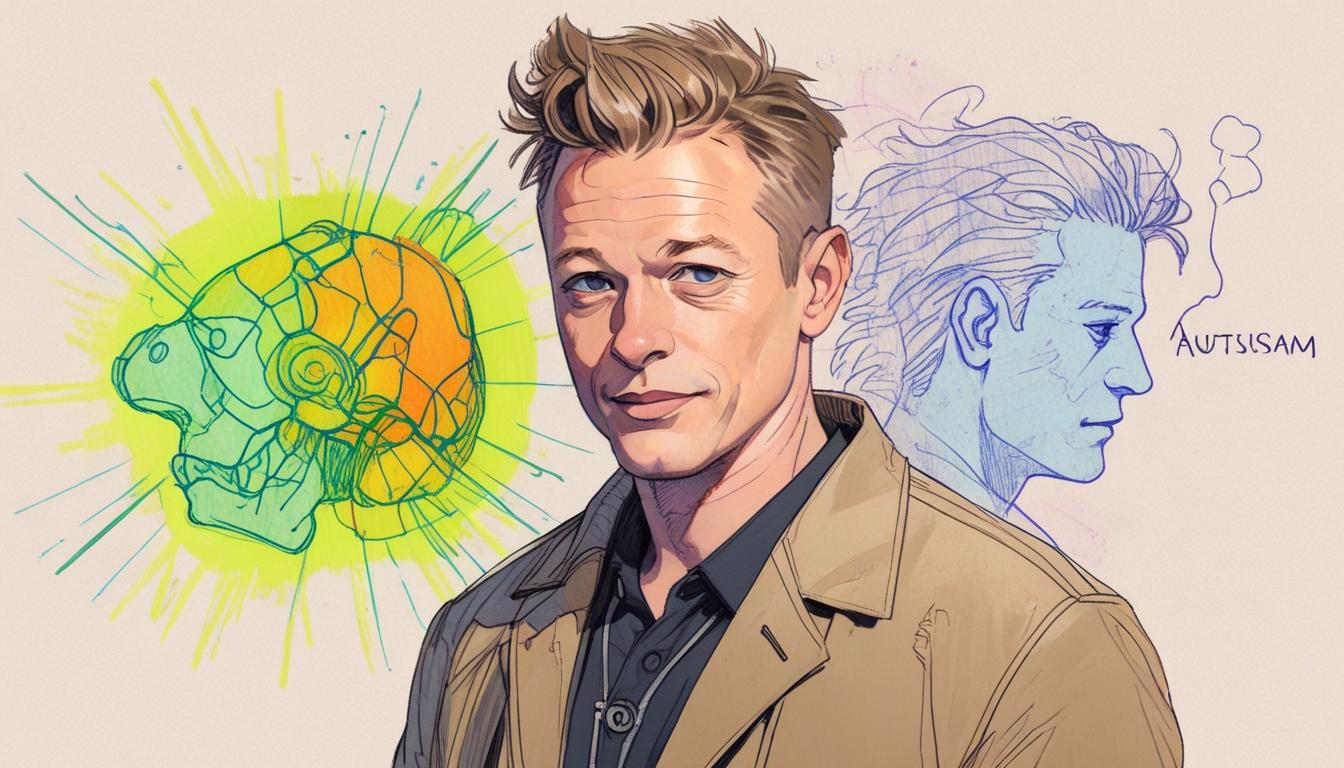TV presenter Chris Packham has publicly challenged the comments made by US Health Secretary Robert F. Kennedy Jr. regarding the identification and eradication of autism’s so-called causes by September. Speaking on ITV’s Good Morning Britain, the 64-year-old conservationist, whose advocacy extends beyond the natural world to include autism awareness, expressed serious reservations about the notion that an “autism epidemic” exists.
Packham asserts that the apparent increase in autism diagnoses is not necessarily indicative of a true rise in incidence. Rather, he believes it reflects a growing awareness and understanding of the condition. He stated, “Firstly, there’s no epidemic. What we have done is we’ve created a wider awareness of this condition, and therefore more people are able, hopefully, to access help. And that has to be seen as a very, very positive thing.” His perspective aligns with the view that improved diagnostic criteria and increased acceptance are key to understanding the apparent surge in cases, leading to approximately 1 in 31 children diagnosed with autism across the United States, a figure that has significantly risen from 1 in 150 in 2000.
A crucial aspect of Packham’s critique revolves around RFK Jr.'s implications that autism could be treated or cured. He emphasises the importance of distinguishing between the needs of autistic individuals and the misguided desire for a cure, stating, “We don’t want a cure. We are not broken. We are merely different.” This assertion resonates deeply within the autistic community, many of whom appreciate their neurodivergent traits as integral to their identities.
The National Autistic Society describes autism as a lifelong neurodivergence that shapes how individuals navigate the world, often leading to social challenges and the need for tailored support. Packham’s views reflect a growing advocacy for acceptance rather than remediation. He contends that neurodivergent individuals contribute significantly to society, arguing, “Without people who think differently, some of the world’s problems simply would not have been and will not be solved.”
Kennedy's recent initiatives—announced during a Cabinet meeting with President Donald Trump—aim to establish a comprehensive national registry to track autism cases, a move intended to facilitate research into the condition’s causes. However, experts have raised concerns about Kennedy’s track record as a vaccine sceptic, fearing that he may revive discredited theories that link vaccines to autism. This concern is particularly poignant given the overwhelming scientific consensus that has thoroughly debunked any such connection.
While Kennedy’s initiative intends to collate vast amounts of data from Medicare and Medicaid enrolments, critics argue that this approach may be too simplistic, lacking the detailed genetic and neurological insights that are essential for understanding autism’s complexities. “Claims data won't reveal root causes, which are more likely linked to genetic and early developmental factors,” cautioned professor emerita Helen Tager-Flusberg from Boston University.
Moreover, various autism advocacy groups emphasise that framing autism as a "preventable disease" is not only misleading but also potentially harmful, as it raises the spectre of attempts to alter or eradicate autistic traits. The Autistic Self Advocacy Network has condemned the idea that a cure is necessary, asserting that such views undermine the identities of those living with autism.
As Packham prepares for the release of new episodes in his BBC series Inside Our Autistic Minds, which aims to explore the realities of neurodivergent individuals, he remains focused on fostering understanding and acceptance. His latest work, alongside his ongoing advocacy, seeks to elucidate the lived experiences of autistic individuals while dispelling misconceptions surrounding their conditions.
In a culture often quick to judge or label, Packham advocates for deep empathy and understanding, highlighting the importance of real, open conversations about autism to create a more inclusive society. He summarised his mission succinctly: “Our mission here is to ask people to better understand these conditions so that we can make small changes in society to make all of our lives easier and more productive.”
The dialogue surrounding autism continues to evolve, but at its core remains the recognition that autistic individuals are not incomplete, but unique contributors to the rich tapestry of human experience, deserving both respect and understanding.
Reference Map
- Paragraphs 1-2: [1]
- Paragraphs 3-5: [2], [3]
- Paragraph 6: [4]
- Paragraph 7: [5]
- Paragraphs 8-9: [6], [7]
Source: Noah Wire Services
